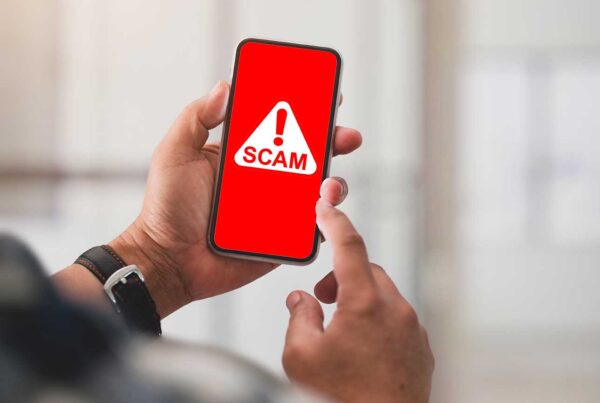The holidays are one of the busiest times of the year with family gatherings, shopping for gifts, and all the other disarray that comes with the season. Amid the madness, scammers are looking for inventive ways to take advantage of people who are feeling extra generous. Last year, 80% of Americans were targeted by at least one holiday scam and nearly half fell victim to one.
Here are four tips to help avoid common scams during the holiday season.
Don’t fall for fake charities
Scammers will try to take advantage of the generosity and goodwill of people during the season of giving. Some will create replica sites to mimic the appearance of a legitimate charity’s website. They may also use fake social media campaigns and fundraising sites to trick people into making donations. Charities with unfamiliar names or social media profiles with no associated website are often tell-tale signs of a fake charity being used by a scammer.
Say no to gift card scams
Scammers may try to trick you into giving up the numbers on the backs of gift cards. While it may seem like an obvious scam, some can be hard to detect, including impersonating banks or government agencies that come across as more trustworthy. Scammers will often make their requests incredibly urgent, hoping to catch you off guard and get you to act quickly. Unsolicited emails from an unrecognized sender urging you to act quickly should be deleted and ignored.
Avoid holiday vacation scams
Scammers may try to sell flights, holiday accommodations, or holiday getaways that don’t exist. They may also direct unsuspecting holidaymakers to fake websites to steal their personal details and payment information.
“Everyone wants a holiday getaway for an unbelievable deal, but a rule of thumb is that if it sounds too good to be true, it almost always is,” says Grant Wheat, Vice President of Risk Management at Verve, a Credit Union. “During the holiday frenzy, it’s important to not let impulse drive purchase decisions and to verify the sources you’re making purchases from.”
Beware of lookalike online stores offering big discounts
With more people than ever before shopping online during the holidays, it’s important to know how to shop online safely. Scammers will create online stores with deeply discounted prices to trick you into buying from them. If you do, they’ll either steal your credit card number or force you to use payment methods that can’t be reversed – such as wire transfers, payment apps like Zelle, or gift cards. One way to identify a lookalike website is to look closely at the domain name. Scammers will often replace letters with numbers, insert foreign letter characters, or use similar looking letters. For example, “googie.com” looks like “google.com” to the unsuspecting or unaware online shopper.
“The holidays are a time where you truly can’t afford to let your guard down, with scammers looking to pounce on any mistake or momentary lapse of judgment,” Wheat says. “Over time these scammers have gotten more inventive, so it’s important to know what to look out for to avoid becoming the victim of a scam this holiday season.”
Would you know a holiday scam if you saw one? Enter Verve’s Bah Humbug to Holiday Scams Contest to test your knowledge and learn how to avoid holiday scams. Visit https://verveacu.com/bah-humbug-holiday-scams-quiz/





 Federally Insured by NCUA |
Federally Insured by NCUA |  Equal Housing Opportunity |
Equal Housing Opportunity |